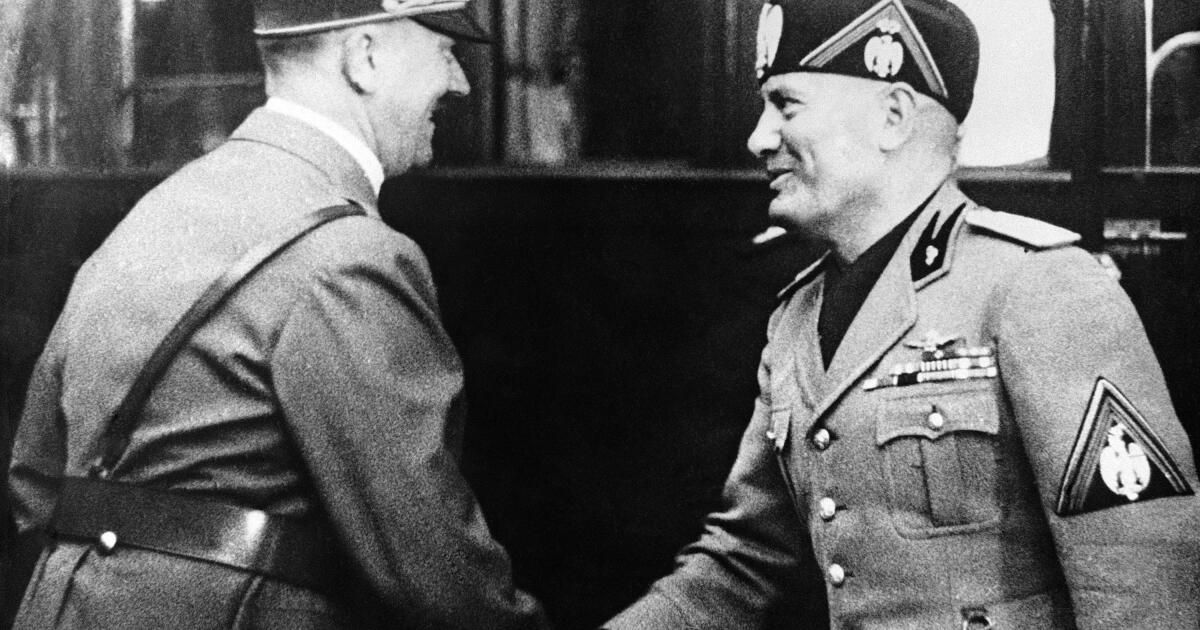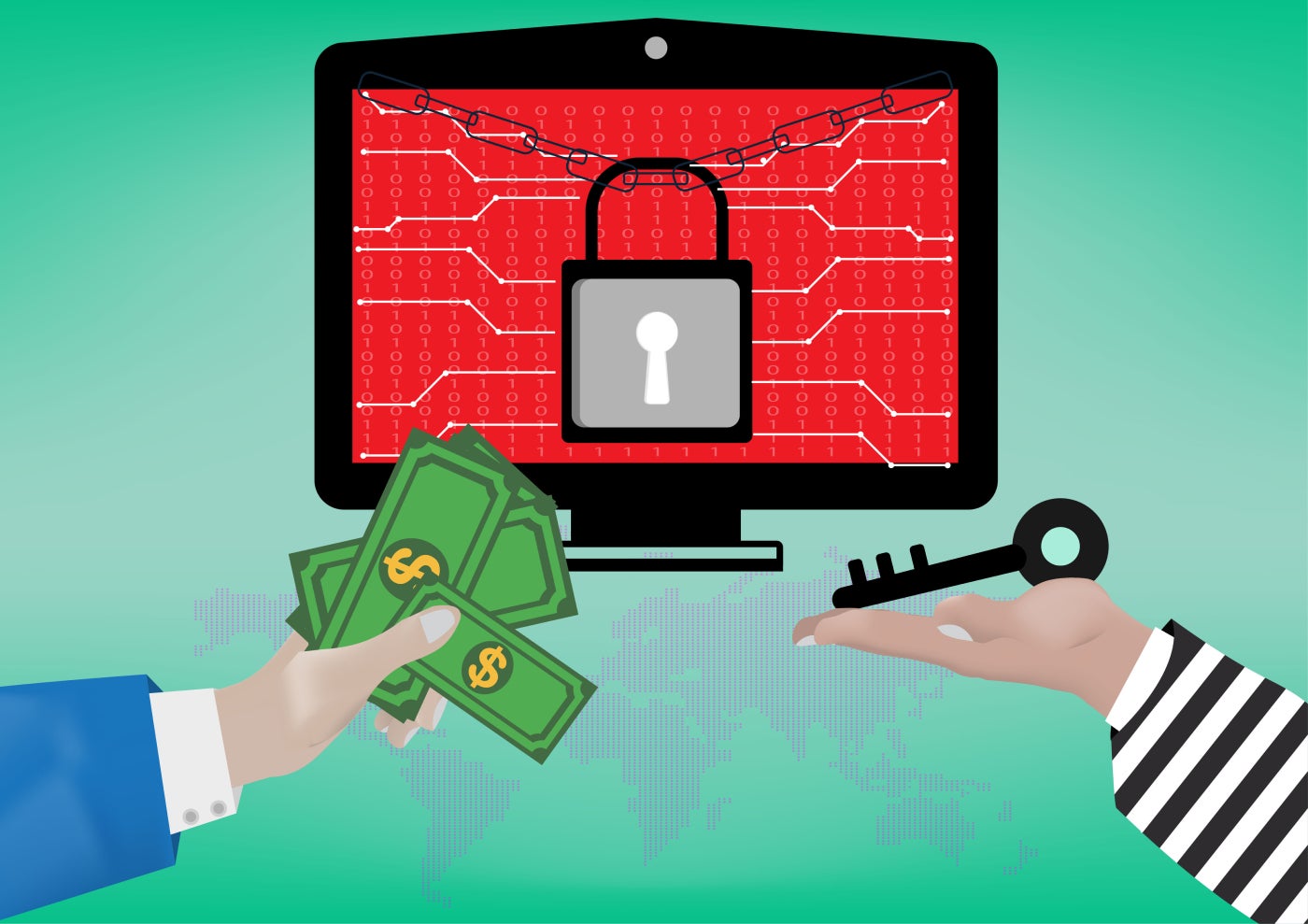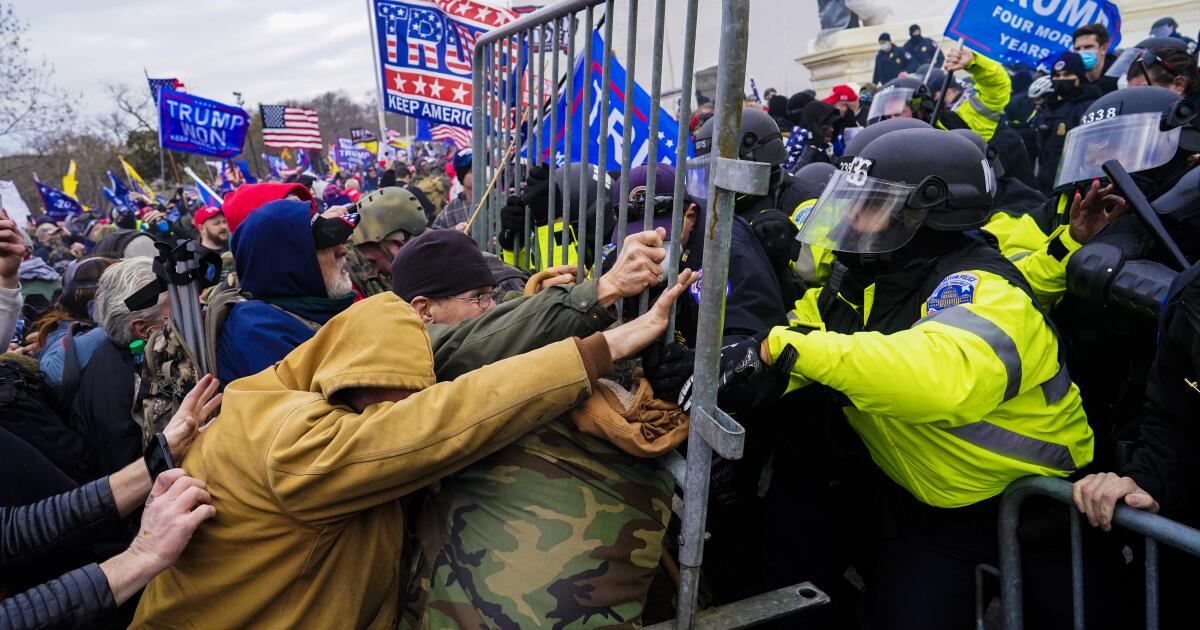Donald Trump on Monday reaffirmed his recent declaration that conservative Christians would not have to vote again if they help elect him in November. At a campaign event for evangelical Christians last week, the former president said: “Christians, go out and vote. Just this once. You don’t have to do it anymore. Four more years. You know what? It will work out. Everything will be okay. You don’t have to vote anymore.”
We shouldn’t be surprised. Free and fair elections have been a nightmare for Trump, who lost the popular vote in 2016 and was impeached in 2020 after one term, at which point he told his supporters he had won and fomented a violent insurrection.
It is no wonder that the former president is all for the authoritarian alternative. Autocrats have long found it unacceptable to rely on elections to decide one’s political fate. They have “rigged” democratic systems by ending free and fair elections so that they can remain in power indefinitely, just as Trump seems to want to do.
Many dictators, including Adolf Hitler and Benito Mussolini, as well as more recent examples such as Vladimir Putin and Hungary’s Viktor Orbán, had to prevail in a democratic electoral system before being able to impose authoritarian rule. Both Mussolini and Hitler were appointed by conservative elites who believed it was preferable to empower extremists with criminal records than to allow the left to win.
Mussolini rose to power quickly. He founded the Fasci Italiani di Combattimento (Italian Fighting Leagues) in 1919 as a decentralised militia movement to violently stop left-wing strikes and factory occupations. The group evolved into the Fascist Party, and by 1922 Mussolini had been appointed prime minister.
But elections were always a problem for Mussolini, whose party was initially unpopular, identified with chaos and violence. The fascists who ran independently in 1921 won only 0.4% of the vote. That is why, in 1923, meditating On how to deal with “dissatisfied people” who might oust him from office, Mussolini wrote: “It is prevented by means of force” and “using this force without mercy when it is necessary to do so” – a description that fits many coup attempts, including the one on January 6.
In preparation for the 1924 elections, the fascists introduced an electoral reform, the Ley Acerbo, which granted any party that received the largest number of votes, provided it exceeded 25% of the total, two-thirds of the seats in Parliament. A climate of intimidation led to the law being passed and the fascists winning the elections shortly afterwards.
Socialist opposition leader Giacomo Matteotti was assassinated after denouncing the election results. When Mussolini’s involvement in the murder became public and he faced imprisonment, he declared a dictatorship and passed “laws in defense of the regime” that shut down opposition parties and removed any justification for elections. Italians did not have free and fair elections for the next 18 years.
Hitler had watched Mussolini's rise from Germany, and when his 1923 Beer Hall Putsch, an attempted Nazi coup, failed, he changed his tactics.
Hitler had learned that to overthrow a democratic system, one must enter it. “We will have to hold our noses and enter the Reichstag.” [Germany’s parliament] In 1925, he said that he was “against the Catholic and Marxist parties,” but that did not mean that he pretended to love democracy. He and his party undertook open campaigns to destroy it.
The last free election in which Hitler stood took place in early 1933. At a fund-raising meeting with leading industrialists, where he spoke like many of today's Republicans, he said the election was German voters' last chance to reject Communism. If the vote did not work, he warned, the Nazis would resort to violence. Hitler's economics minister concluded the meeting by bluntly ordering businessmen to go to the till and make their contributions to the Nazi Party.
And like Mussolini, Hitler knew how to consolidate power. A week before the election, after a mysterious arson attack had severely damaged the Reichstag, he issued a draconian decree which eliminated all individual rights and liberties and gave his administration the ability to take over state governments.
The Nazis won just over 43% of the popular vote, well short of a majority. But Hitler made good on his promise of violence, arresting or killing many of his parliamentary opponents. He then intimidated most of the rest into voting for the Enabling law, Which gave his administration virtually unlimited power. It took him seven weeks to translate his open aversion to voting into total dictatorial control.
Today, as “electoral autocracies” take hold around the world, elections are no longer enough to classify a country as a democracy. Many elected leaders manipulate electoral systems to get the results they need to stay in office and keep elections going to cover their despotism with a veneer of freedom.
Trump appears to want something even more radical: no voting at all. The Republican Party supports this idea with claims that Democrats have so corrupted elections that they are no longer a valid way to choose leaders. As Senator Tommy Tuberville of Alabama, a MAGA supporter, puts it: said Newsmax in 2023: “The American people should just stand up and say, ‘Listen, enough is enough, let’s not have any more elections.’”
Dictators always tell us who they are and what they are going to do. With the example of the fascists in mind, we should take Trump and his enablers seriously. The ultimate goal of Republican election denial is not to challenge certain election results, but to completely suppress the free and fair vote.
Ruth Ben-Ghiat is a professor of history at New York University and editor of Lucida newsletter on threats to democracy. His latest book is “Strongmen: Mussolini to the Present.” Benjamin Carter Hett is a professor of history at Hunter College and the Graduate Center at CUNY. His latest book is “The Nazi Menace: Hitler, Churchill, Roosevelt, Stalin, and the Road to War.”











